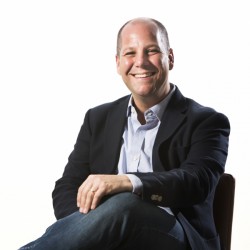Alberto Lidji, the new Global CEO of the Novak Djokovic Foundation reveals that life makes way for people who know where they’re going. He claims that ensuring access to high quality early childhood education is an extremely noble cause.
This inspirational leader who has successfully led philanthropic organizations through periods of significant growth will provide global leadership for the Novak Djokovic Foundation in promoting access to high quality Early Childhood Education (ECE) for children from disadvantaged backgrounds.  Alberto Lidji has recently been named the new Global CEO of the Novak Djokovic Foundation.Originally from Argentina, Lidji was educated at Cambridge University and the London School of Economics. After a career in the private sector, focused on capital introduction into emerging and frontier markets, Lidji ventured into the world of philanthropy. Lidji has also served as the Head of Development and Alumni Relations at Trinity College, Cambridge, and is the founder of Maximum Philanthropic Benefit, an advocacy organization promoting impact philanthropy.
Alberto Lidji has recently been named the new Global CEO of the Novak Djokovic Foundation.Originally from Argentina, Lidji was educated at Cambridge University and the London School of Economics. After a career in the private sector, focused on capital introduction into emerging and frontier markets, Lidji ventured into the world of philanthropy. Lidji has also served as the Head of Development and Alumni Relations at Trinity College, Cambridge, and is the founder of Maximum Philanthropic Benefit, an advocacy organization promoting impact philanthropy.
He sits down with our Managing Editor, Ksenija Pavlovic, to discuss the ideas behind his great passion for early childhood education and the power of philanthropy in transforming the lives of children less fortunate.
- You have been educated at Cambridge University and the London School of Economics. In what way have these academic experiences prepared you for a career in philanthropy?
Both Cambridge University and the London School of Economics are truly special places, with robust philanthropic traditions. It was at the LSE that I first gained insight into philanthropy. Immediately after completing my Masters in Management there, I joined the LSE’s development team and thoroughly enjoyed raising funds to make their £100m Campaign a resounding success. While I didn’t realize it at the time, it was at that point in my life that the wheels were set in motion for my career in philanthropy. Coincidentally, later on in life I also ended up working for Trinity College at Cambridge University, heading their development function and meeting some wonderful people in the process.
These are two institutions that enriched my life tremendously, and where I had the pleasure of giving back by helping them increase their philanthropic support base. I would say the LSE taught me much about business and economics and, as their motto notes, triggered my curiosity ‘to know the causes of things‘. Cambridge, by contrast, enabled me to appreciate learning for its sheer beauty and, not insignificantly, gave me firsthand exposure to a virtually unrivaled philanthropic environment. Both institutions left indelible memories that will last a lifetime, and some of my closest friends today are those I met while studying there.
- What made you leave the private sector?
I always say that life isn’t quite complete if all you’re doing is trying to meet Q3 targets for shareholders. I’m only planning on living once (although I could be wrong!) and I want to make a difference and make a positive impact for those less fortunate.
The private sector has some tremendously positive attributes and, in many ways, I haven’t truly ‘left‘ the private sector. Rather, I like to think that I embrace a healthy mix of not-for-profit benevolence and altruism, combined with a private sector sense of urgency and commercial savviness. A commercial mindset is important because philanthropy, like anything else, can suffer from inefficiencies. I always think philanthropic organizations should be as commercial as possible, so they can be as charitable as possible. There’s little point in leaving value on the table when there are some truly worthy causes out there and so many individuals in serious need of charitable intervention.
- What, in your mind, contributed to your success in philanthropy before coming to the Novak Djokovic Foundation?
Success can be measured in many ways. I think it’s important to avoid trying to be ‘the‘ best and, instead, one should focus on being better than one was before. Achieving one’s personal best is much more tangible and, in many respects, much more rewarding. I also think there is value in being quite focused and having a clear narrative as you progress through your career and decide on next steps. Life makes way for people who know where they’re going, and having a clear focus will make professional life easier to navigate.
On the strategy side, the difficult part isn’t so much about trying to figure out what to do next but, rather, it’s often about deciding what not to do next. There is never any shortage of good ideas, but there is a shortage of hours in the day and in reality we (and our teams) only have limited bandwidth.
- What are the biggest lessons in philanthropy you have learned in your career so far?
There really are many lessons but, if I were to highlight a few, I think the value of quantifying your charitable work’s impact is tremendously important. Likewise, you’re unlikely to go very far if you don’t get to know your donors intimately well. Wherever possible, combine passion with logic and always, at all costs, avoid developing a sense of entitlement. It’s a competitive market out there and like almost anything else in life, you’ll be judged on the merit of your proposition. Also, whenever the opportunity presents itself, go ahead and get donors and beneficiaries to interact with each other — you’ll be amazed at the outcome.
- What is the most important piece of practical advice you would offer to someone wanting to follow your career path?
I think you should have a healthy appetite for calculated risk and a rather high tolerance for uncertainty. Understand that you won’t always know what comes next, and you should be comfortable with this fact. Accept that failure is part of success. Learn from your failures and always analyze what went wrong and think about what you’d do differently next time. Be careful not to delve on this too much though, since you really should be looking forward most of the time. Keep making decisions, so you can calibrate your strategy and ensure you generally make the right calls over time. Lastly, a little something many of us didn’t take away from economics or finance class: indecisiveness is one of the costliest habits out there.
- How do you see the future of Novak Djokovic Foundation?
It is a privilege to join the Novak Djokovic Foundation as its Global CEO. Promoting access to high quality early childhood education is an extremely noble cause and the Foundation is uniquely placed to transform the landscape in this space. It is an exciting time and I very much look forward to working with Novak and Jelena Djokovic and the rest of the team to make some truly wonderful things happen.
I see a wonderful philanthropic organization that will be around well after its founder stops playing competitive tennis. A key objective is to nurture the Novak Djokovic Foundation into a self-sustaining force for good, that inspires global support and transforms the world around it for many decades to come. I have the privilege of influencing the direction, tone and tempo but, in truth, these things mean very little without a great team and solid organizational structure. Our people have extremely big hearts and very sharp intellects – it’s an honor to be on this team.
- What aspect of the charitable work undertaken by the Novak Djokovic Foundation attracted you to become its Global CEO?
The Foundation focuses on facilitating and promoting access to high quality Early Childhood Education (ECE), especially for children from disadvantaged backgrounds. As a father of two young children under the age of two, I appreciate the importance of providing our children with the very best during their early years. As a professional in this field, one need only look at the growing body of evidence underscoring the value of high quality ECE for children from all socioeconomic backgrounds, with long-term benefits well into adulthood.












